

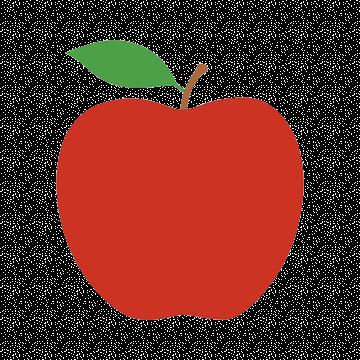






By Sara Shimanovich (’26)
he school year has finally begun and there have been many new changes throughout the GMSG. New extracurricular activities, different elective periods, and chesed are just a few of the school’s latest changes and additions.
The new staff introduced this year has created new changes in growth and learning.
One major changes for this year is the appointment of Mrs. Selter as the Judaics principal for the girls school. Previously having taught honors Chumash, Mrs. Selter has taken on multiple roles teaching Navi, Women in Halacha and last but not least, GMSG Menahelet. Mrs. Selter has introduced several new opportunities for students including art-themed extracurricular clubs and monthly Chesed trips. After our recent nature
trip with Mrs. Selter, Sarah Kahane said “The nature trip has been the highlight of my year so far!”

Despite a slight reduction in





teachers to the GMSG. Mrs. Helen Crews, who only taught in the MHA and CYHSB has joined GMSG staff
math classes throughout the school.
teacher that has joined the GMSG is Mrs. Shana Lowell who has been appointed as the British Literature teacher for 11-12 grade. We also have Mr. Andrew Goldstein joining our staff to teach government and history classes. Mr. Goldstein formerly taught at Grizzlies Prep Charter School, KIPP Memphis Academy Middle School, and GRAD Academy Memphis and we are so glad









he has joined the MHA/FYOS staff. This change in teachers brings an exciting start to the year by being able to have new faces in the GMSG faculty.
Additionally, many new clubs and activities have been introduced to the GMSG this year. This includes our new extracurricular activities such as art, photography, and pottery which will all be starting soon. Having an exciting extracurricular club will be something to look forward to throughout the year, especially as the year gets more stressful. This will also allow students the opportunity to learn many different art skills that might not be so available, for example pottery.
Another exciting opportunity for students this year is to start their own clubs. Juniors Neima Rovner and Margalit Goldkin have already taken this opportunity, starting a student learning program and Tehillim club, respectively. Many students have talked about starting more clubs, with rumors of possible student-lead a Mock Trial or volleyball team. We can't wait to see what other clubs begin.



children’s hospital. There we split up into groups based on what task we were doing. The groups included a beverage cart, a toiletries cart, and doing arts and crafts with patients. While this had been a new experience for many, all students left feeling like they had a meaningful time. For Tishrei's trip we will be volunteering in the MJCC preschool this week. Students are extremely excited for these chesed opportunities, as Margalit Goldkin remarked, “although this isn't a new experience for me as I had done these things this past summer, it’s good to know I'm able to have the opportunity to continue it this school year.”
In honor of Rosh Chodesh, we also now have the opportunity to learn from Mrs. Rivki Wiener, beloved teacher in the MHA and mother of sophomore Aliza Wiener, once a month. Every Rosh Chodesh she will be giving a Torah class for GMSG students and women in the community in the evening in the GMSG Beit Midrasha. Starting strong in Elul's class, Mrs. Wiener jumped straight, discussing one's purpose in life, based on the book Living in the Presence by Dr. Benjamin Epstein.
Other new activities include Chesed trips which will be occurring approximately once a month. Our first Chesed trip of the year was this past Rosh Chodesh to the

A change to the curriculum this year is the addition of new Judaic elective periods which are promising intriguing and enthralling discussions. The topics include studies on Israel as part of our year-long theme of "Libi and Psychology and Judaism with Mrs. Rivky Klein Psychology and Judaism and an Israel themed elective are completely new topics for the GMSG curriculum. While most classes are solely focused on grades, a Judaic elective will be a good break to focus on growing our knowledge in Judaism without the pressure of grades.
While there have been many significant changes this current year, overall they add an extra positive spin on the year, allowing growth and learning opportunities. Having the clubs, Chesed trips and learning programs, and new elective period will help us expand our knowledge and a experiences, while having a new teachers will help us be able to do those new learning and growth opportunities and we are excited to see what the rest of the year holds.
By Sarah Kahane
his week’s Parshios, Parshas Nitzavim and Vayeilech, covers Sefer Devarim 29:9-31:30 and combines both warning and heartfelt emotion. It is read on the Shabbos before Rosh Hashana, marking a powerful moment where Moshe, aware of his approaching death, addresses the entire nation one last time. He gathers everyone, from tribal leaders to children and even strangers, stressing the importance of following Hashem’s law after his passing, as Yehoshua will take over leadership. Moshe warns against worshiping other gods, highlighting the severe consequences, including destruction, exile, and abandonment, for failing to uphold the covenant.
reward, without expecting wealth, longevity, or heavenly rewards. As the rabbinic scholar Ben Azzai said, “The reward of a mitzvah is a mitzvah” (Pirkei Avot 4:2).
In these parshios, both Moshe and Hashem foresee the people’s transgressions, leading to destruction and exile, planting the seeds of what we now call Jewish guilt. However, in modern times, we aim to balance guilt with personal growth, understanding that not all failures are within our control.
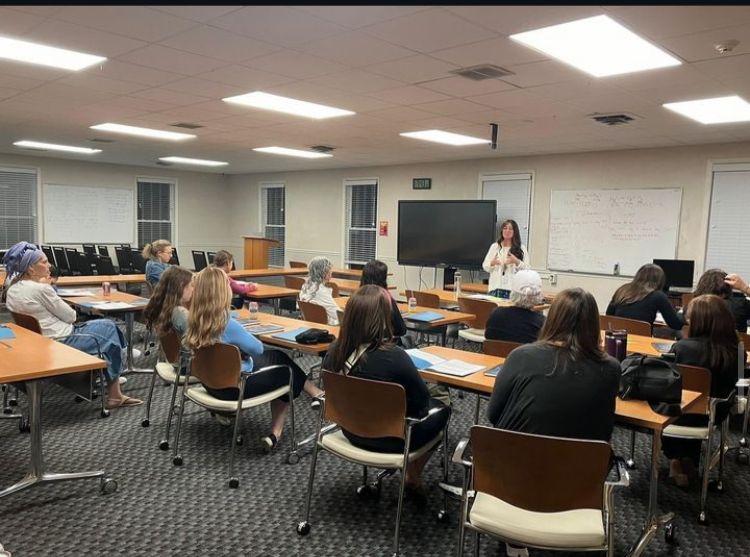
Despite this caution, Moshe reassures the people that adhering to the law is not difficult. He emphasizes the power of free will and the victory of good over evil, encouraging them to choose life over death. His message is simple: the laws are within reach, in their mouths and hearts, ready for them to follow.
Moshe promises prosperity and a long life to those who obey Hashem’s commandments (Devarim 30:8-10, 16, 19-20). Yet, we know from experience that good deeds do not always lead to tangible rewards. Bad people often thrive, while the good can suffer. The Torah does not address an afterlife reward, later rabbis introduced this concept after the destruction of the Temple in 70 CE so today, we take a different approach in understanding the reward of a Mitzvah, recognizing that ethical behavior is its own
Rosh Hashana and Yom Kippur offer us a unique opportunity for deep reflection and transformation, inviting us to consider our actions, relationships, and connection to the divine. Like Moshe, who gathered all members of the community— regardless of status, age, or background—we too can open our doors wide to everyone,
including those who may have strayed or only join us once a year. These chagim remind us to embrace the entirety of our community with compassion and understanding, welcoming each person on their own terms, free of judgment. This inclusivity fosters a sense of belonging, encouraging every individual to engage in self-reflection and growth, no matter where they are on their spiritual journey. As we strive to better ourselves, our relationships, and the world around us, we recognize that these holy days are not just for personal introspection, but for communal healing and unity, a time to strengthen the bonds that hold us together and recommit to a future built on shared values of kindness, justice, and integrity.
By Yaheli Zalman (’28)
ntering high school felt like coming into a new world. My upperclassmen friends are like giants next to me. I've been transferred from being the oldest to being the youngest student in the school. As a recent middle school graduate of the MHA coming into the high school, there has already been a significant change in academics, social atmosphere, and the experiences I would have. All these different changes bring something exciting for me to look forward to this year!
Starting high school brought a rollercoaster of emotions: excitement, nervousness, and a sense of preparedness as the big day approached. I felt excited about meeting new people and finally beginning this new chapter in my life. The start of high school is an exciting time filled with opportunities for personal growth, new experiences, and preparing for the future. I was eager to see what the year had in store and looked forward to an amazing experience.
However, along with my excitement came nervousness about the workload and the challenges of harder classes. To manage these concerns, I reminded myself that while high school would be more demanding than middle school, it would also offer a similar atmosphere, just with more serious responsibilities.
The biggest change for me transitioning from middle school to high school was the wider variety of classes, more interactions with students from other grades, and access to a lounge. In high school, there are way more classes than I ever had in middle school. Government, Halacha, and Judaic electives, not to mention that each class has different levels of learning. These options weren’t available in middle school, nor did we have classes tailored to fit our necessary individual learning environments. I personally appreciate the range of classes and levels because it ensures that everyone, including myself, gets the right education for their needs.
An especially fun event was the "Bonding in the Barn" night, where I met new people who have since become my friends.

Coming into high school, I had the special opportunity to bond with students from different grades. Whether it’s seniors sharing their excitement about their upcoming future, juniors discussing their plans for senior year, or sophomores talking about their own experiences, I’ve had the chance to connect with many people looking forward to different opportunities this year. All the students are very friendly, there are various clubs to join, and many upcoming events I’m excited about. The GMSG high schoolers have been incredibly welcoming. On my first day, I was greeted by several students who expressed how excited they were to have me at the school and how much fun this year would be. Whether it’s hanging out with friends between classes or getting tips from upperclassmen, everyone has been supportive and kind.
I’m also looking forward to future events like the gala dinner and GMSG Shabbaton, which are always fun to plan and a great opportunity to connect with people I don’t usually talk to.
The GMSG also offers a variety of fun clubs that help you get involved with the school and promote leadership. Some clubs I’m interested in include the Goldie Globe newsletter, student council, and the girls' varsity basketball team. These opportunities allow me to participate in activities that align with my interests and get more involved in the school community.
Academics in high school have been more challenging, as I’m taking new classes and have the opportunity to learn alongside students from different grades. I’m excited to be enrolled in subjects I’ve never studied before, like chemistry and government. Chemistry has quickly become my favorite class because of the labs, which I find particularly interesting because they allow me to interact with the material and see the concepts in action.
High school has been an exciting experience for me, though it has brought many changes. These include new thoughts, experiences that differ from middle school, a different social atmosphere, and more challenging academics. Each of these changes brings something exciting for me to look forward to this year.
By Margalit Goldkin (’26)
his past summer, I had the opportunity to go on NCSY GIVE -- an all girls chesed program that travels around Israel for five weeks. While NCSY Summer is life changing every year, this summer was especially impactful because of the tragedies that have happened since October 7th and the hurt that the entire Jewish nation was experiencing. The girls on this program came from all across the United States as well as Israel to spend this summer together, giving back to the Jewish people. The first day we jumped right into it and got on the bus to head to an old age home. At first, we were a bit nervous but once we got into the activity it was so inspiring. When we first arrived we quickly started to talk with them as much as we could, dancing, singing, and finding new innovative ways to communicate with them, like playing with balloons. There was a special moment when we were visiting the home. There was a man in the home named Ezra who had a love for singing and we got the opportunity to hear him. He was so sweet and his voice was so powerful. We all slowly joined in with him and had a Kumzitz that was full of such beautiful Achdut and unity that he started crying happy tears.

An extremely powerful day was when we went to Har Hertzel. We barbecued for Chayalim and heard from the wife of a reserve soldier about her experience when the war began. When we went to Har Hertzel it was very emotional and hard. Having a personal connection with someone in the army, it was very difficult to go there. I was scared for my brother, but also proud to know and be able to say what a hero he is, doing this for our country and home. Throughout the day we got to see what the army truly does for us and how strong they are for risking their lives all the time.
On the second to last week of GIVE, we traveled down south to Ofakim with all three GIVE buses. Ofakim was one of the many places that was attacked and had to experience the terrors of the war.
The next place we headed to was Shalva, an amazing organization for kids with special needs. We got to learn about and experience what goes on there. We got to play with younger kids that had special needs. It was definitely not easy at first and we struggled with being able to communicate with them. At one point, a 3 year old girl was getting frustrated because we couldn't understand what she wanted and we didn't know Hebrew sign language! Eventually we had to ask the teacher for help but it was such an amazing experience. The kids were so cute and had so much love to give all of us.
One of the amazing stories from the war was about a woman who lived in Ofakim and actually had Hamas terrorists in her house. She was full of bravery and Bitachon. She and her husband were in the house and had contacted the police to let them know. They waited while feeding the terrorists and having tremendous faith. They split us up into multiple groups who would go help out the community. The group I was in headed to the market and handed out candy and drinks to the people there to cheer them up and bring smiles to their faces on a very hot day. We walked around and talked to people. GIVE truly showed me that as we saw the wonders of Eretz Yisrael. Through chesed, Hashem’s beautiful world, and the stories we heard about our nation, GIVE impacted me in endless ways and I'm so grateful for the girls making the experience and advisors who helped make it all happen. Most of all I’m grateful to Hashem that I was able to see Israel for the first time during times where we could help our home.

By Rachel Sanderson (’27)
s Rosh Hashanah is quickly approaching, it is only fitting to talk about the Haftorah of the first day of Rosh Hashanah – the story of Chana. Chana was barren, and one day, she davened to Hashem to bless her with a child. If He did, she would send the child to work in the Mishkan. Chana davened with so much Kavanah that the words came from her heart, causing her lips to move with no sound. Suddenly the Kohen Gadol, Eli, approached her and asked her if she was drunk, because of the silent way she was davening. Chana’s heartfelt Tefillah became what we know as Shemoneh Esrei. After many years of Tefilot, begging, and crying out to Hashem, her prayers were finally answered: Chana became pregnant and gave birth to a son, Shumuel Ha’Navi.
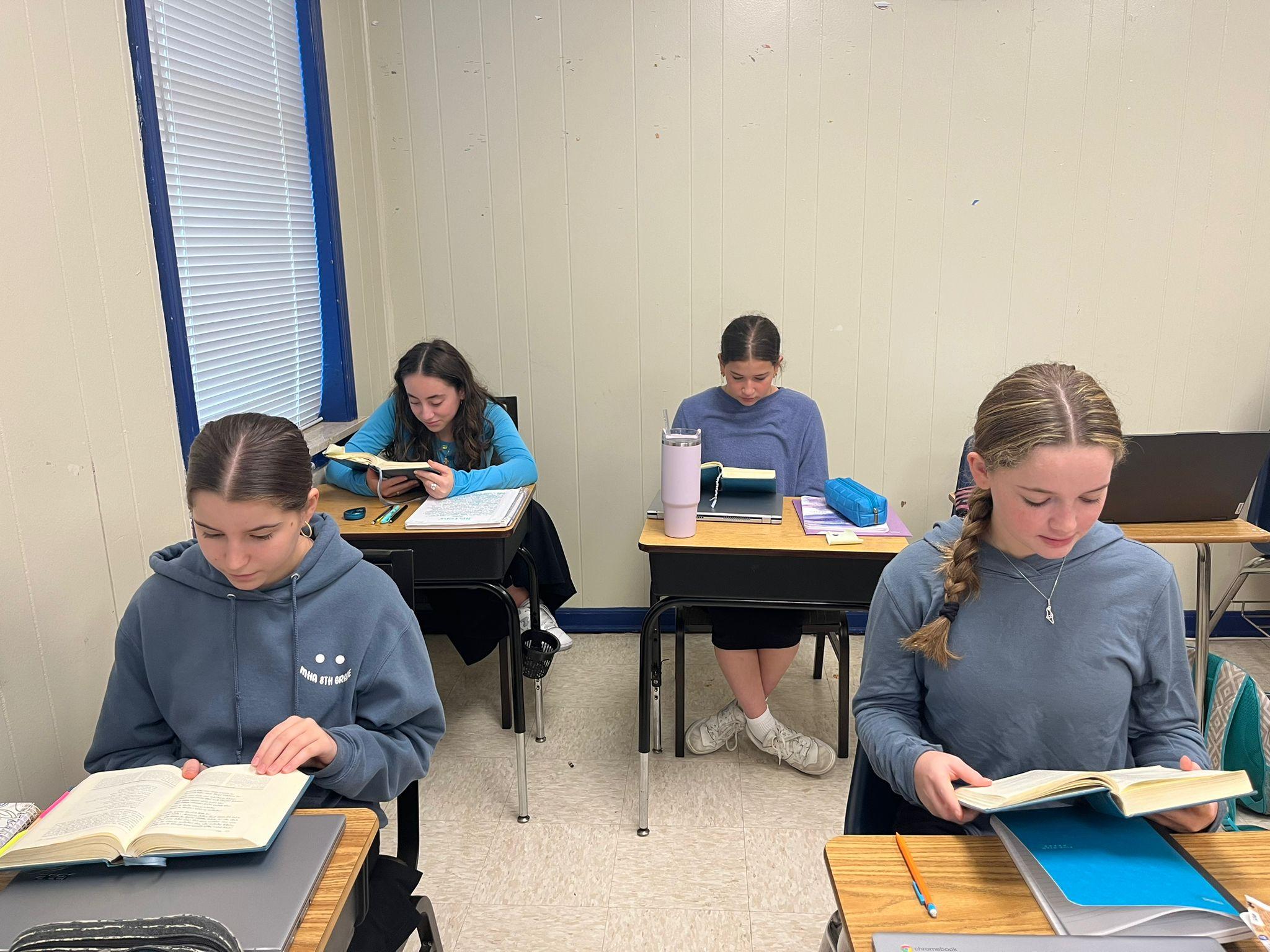
GMSGers take what they learned from Chana to make their davening more meaningful.
Photo Credit Rachel Sanderson (’27)
You might be asking yourself what does this have to do with Rosh Hashanah? Rabbi Yitzi Hurwitz comes to explain this. One of the reasons we read the story of Chana is that it's similar to that of Sarah Imaneu – they were both barren and Hashem “remembered” them, meaning Hashem remembered they were both barren and davening for children. The second answer is that, according to many, Chana’s heartfelt prayer in the Mishkan and the appointment of Eli, the Kohen Gadol, was said to have happened on Rosh Hashanah. The real question is, what are we supposed to take away from Chana’s story?
The Talmud tells us that Rav Hamnuna said, “Several major laws can be derived from these verses of Chana.” What does this mean? Normally, our prayers can be divided into two categories: Those we say often for our everyday needs, and those we say in a time of necessity, like
praying for the sick. We can understand this by looking at the difference between a Bracha and a Tefilah. A Bracha is drawn from a pre-existing blessing that for some reason had been held back, the new version of the Bracha removes what was holding your Bracha back from reaching Hashem and now enables it to reach up to Shamiyim. The translation of the beginning of a Tefilah is “May it be Your will …” meaning when we say this we are asking Hashem for something that we don’t necessarily need, and something that is not necessarily what is best for us at that moment. A Bracha is a blessing that is already created, while a filah is a prayer we are trying to create. There are two types of Tefilah one could say. The first is a closed miracle, for example, asking Hashem to heal a sick person. The second is an open miracle, like a barren woman giving birth to a son. This is the more powerful Tefilah of the two. What Chana was davening for was beyond any natural miracle Hashem could have performed. It wasn’t enough that Chana was asking for a child, but she asked for a holy and righteous child who would follow in the ways of Hashem and His Torah. From this, we can understand why we learn the major laws of davening from Chana specifically, why we read about barren women whose fates were both changed leaving them blessed with children.
Chana and her Tefilot represent the most powerful and holy type of prayer – one that creates a new will in Hashem. We can now connect this idea back to life nowadays. As we go into the new year, we can beg not only for ourselves but on behalf of the hostages, soldiers, and all of Am Yisrael who can’t. We can cry out to Hashem to hear our Tefilot, and even if it’s not what’s meant to be for this time if He sees our Kavanah maybe He will change His mind just like Sarah I’maneu and Chana did with their strong Tefilot. Wishing everyone a Shana Tova Umetukah!

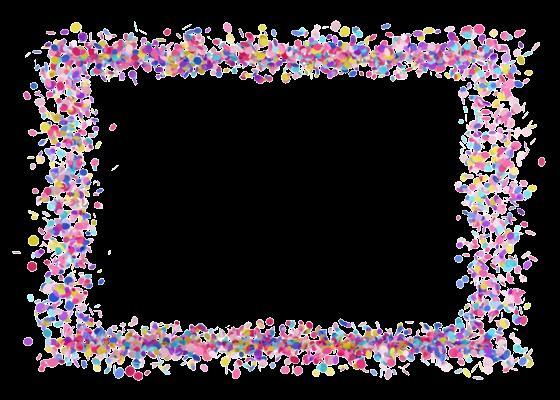






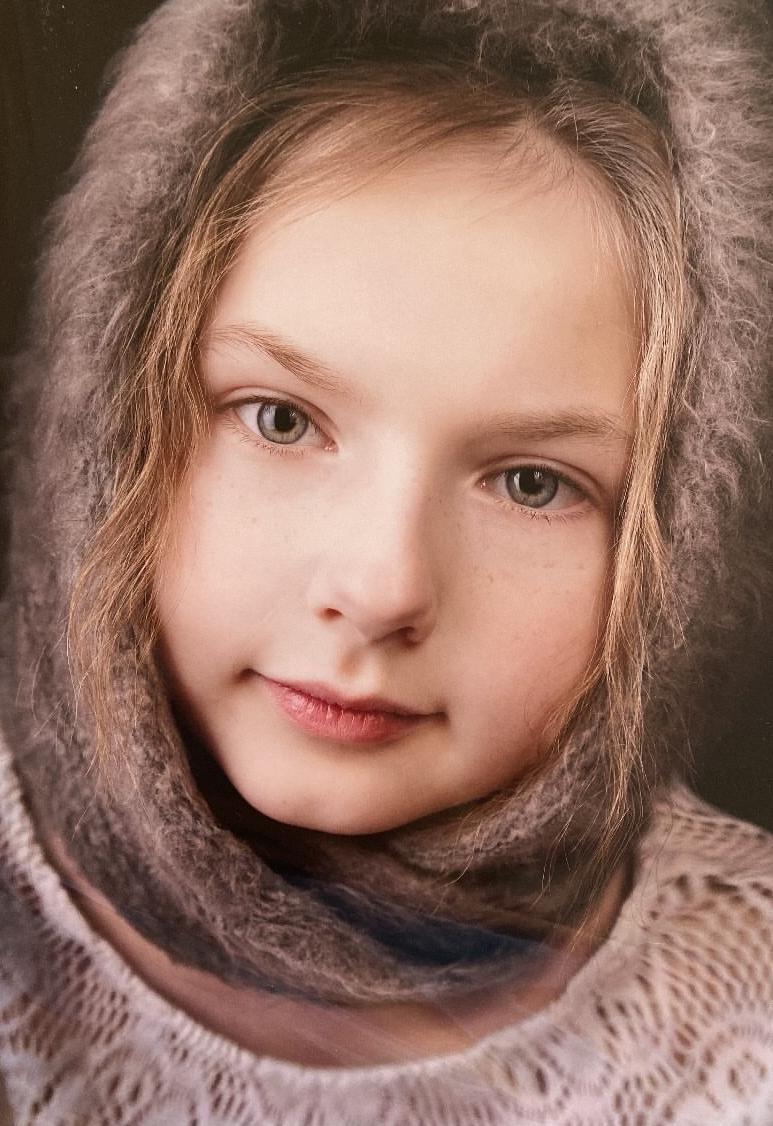


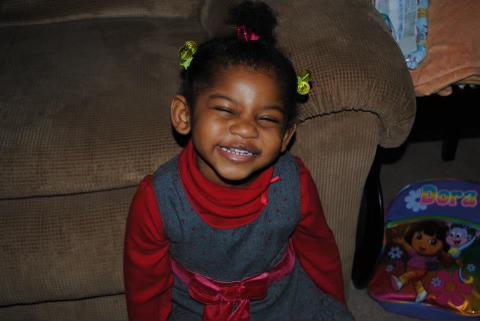








By: Hodaya Harary ('27)







In honor of Rosh Hashana, Atara Segal ('25) interviewed three Rebbetzins from our Memphis community about their feelings towards the amazing celebration of the Jewish new year and asked them each some funny and interesting questions.
What’s your favorite dish to cook for Rosh Hashanah?
Rebbetzin Lichter: Round Challahs
Rebbetzin Klein: Carrot Souffle
Rebbetzin Males: Round Challahs
How are you motivated to cook for all the days of Yomtov? What helps you?
Rebbetzin Lichter: Knowing my family is going to enjoy my Yomtov cooking and trying new recipes
Rebbetzin Klein: Knowing how much my family and community enjoy and appreciate it keeps me going
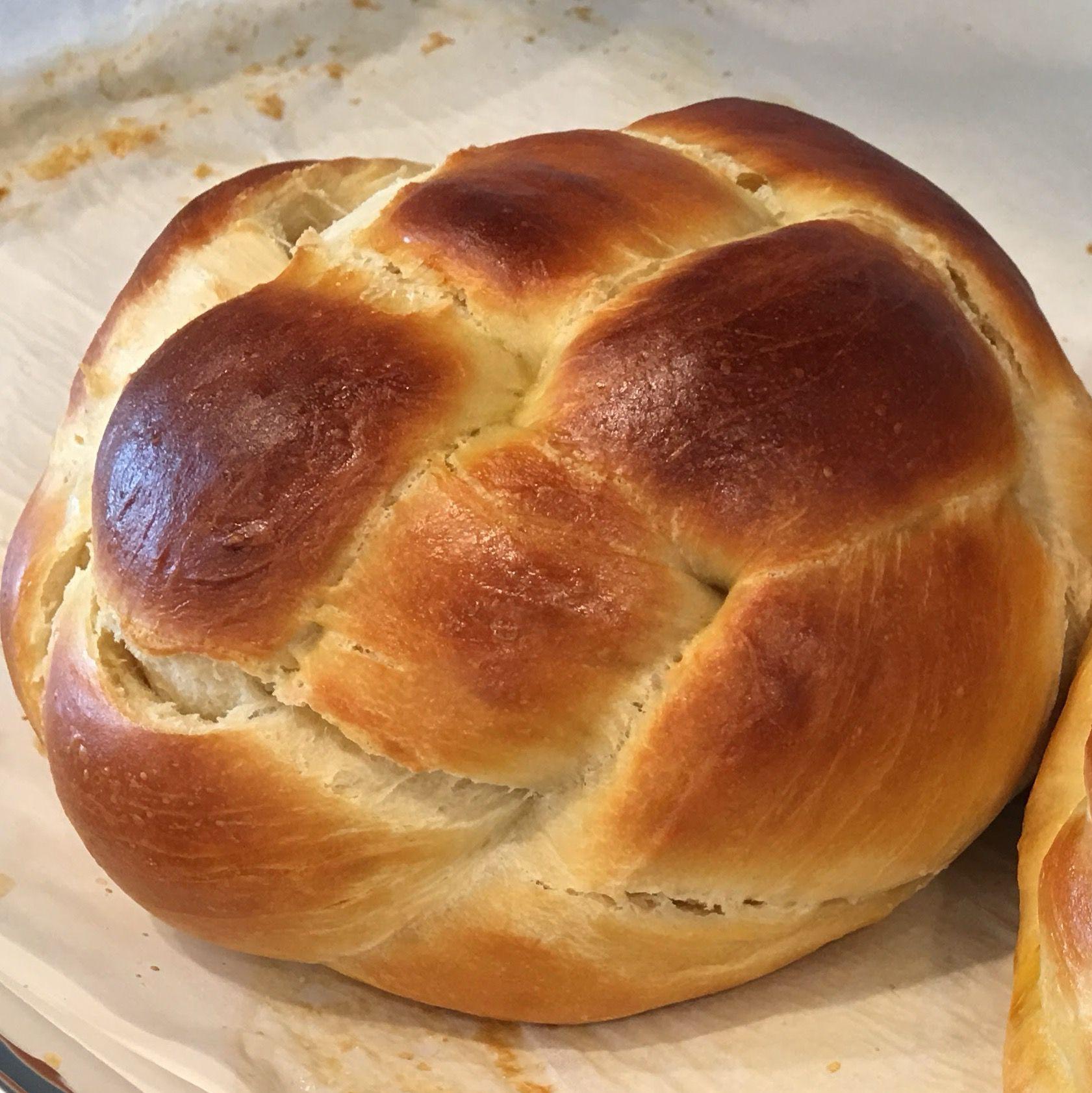
Rebbetzin Males: I'm not the one who loves standing in the kitchen cooking. However, I do enjoy hosting guests and feeding them, so it's a necessity to that end. However, I love making menus and then invite others in the community, who really enjoy cooking and baking, to come over and join me!

What is most meaningful to you about Rosh Hashanah?
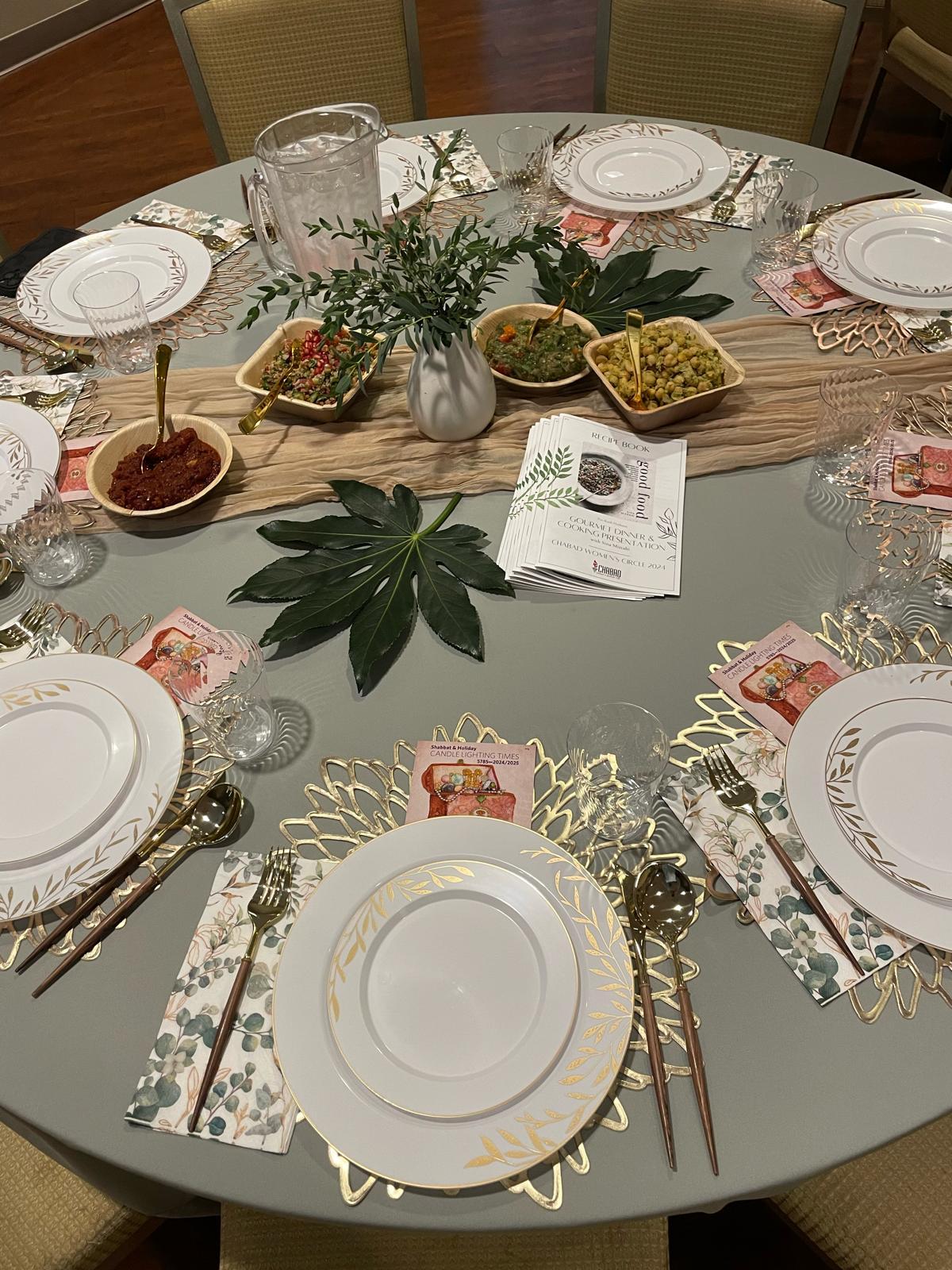

Rebbeztin Lichter: Knowing that I have a clean slate for the coming year
Rebbetzin Klein: Our community Rosh Hashanah dinner and listening to my husband’s inspirational talks and stories at our Chabad house
Rebbetzin Males: A truly new start. Approach Rosh Hashanah by reclaiming Hashem as our Father and King - limitless potential and optimistic about beginning anew!
What is more gross, a lamb head or a fish head?
Rebbeztin Lichter: Head of Lamb
Rebbetzin Klein: Head of Lamb
Rebbetzin Males: Neither are gross – you just need to learn how to present them properly. To be honest, I have never had the head of a lamb, however, did fly one in from NY in my carry-on.











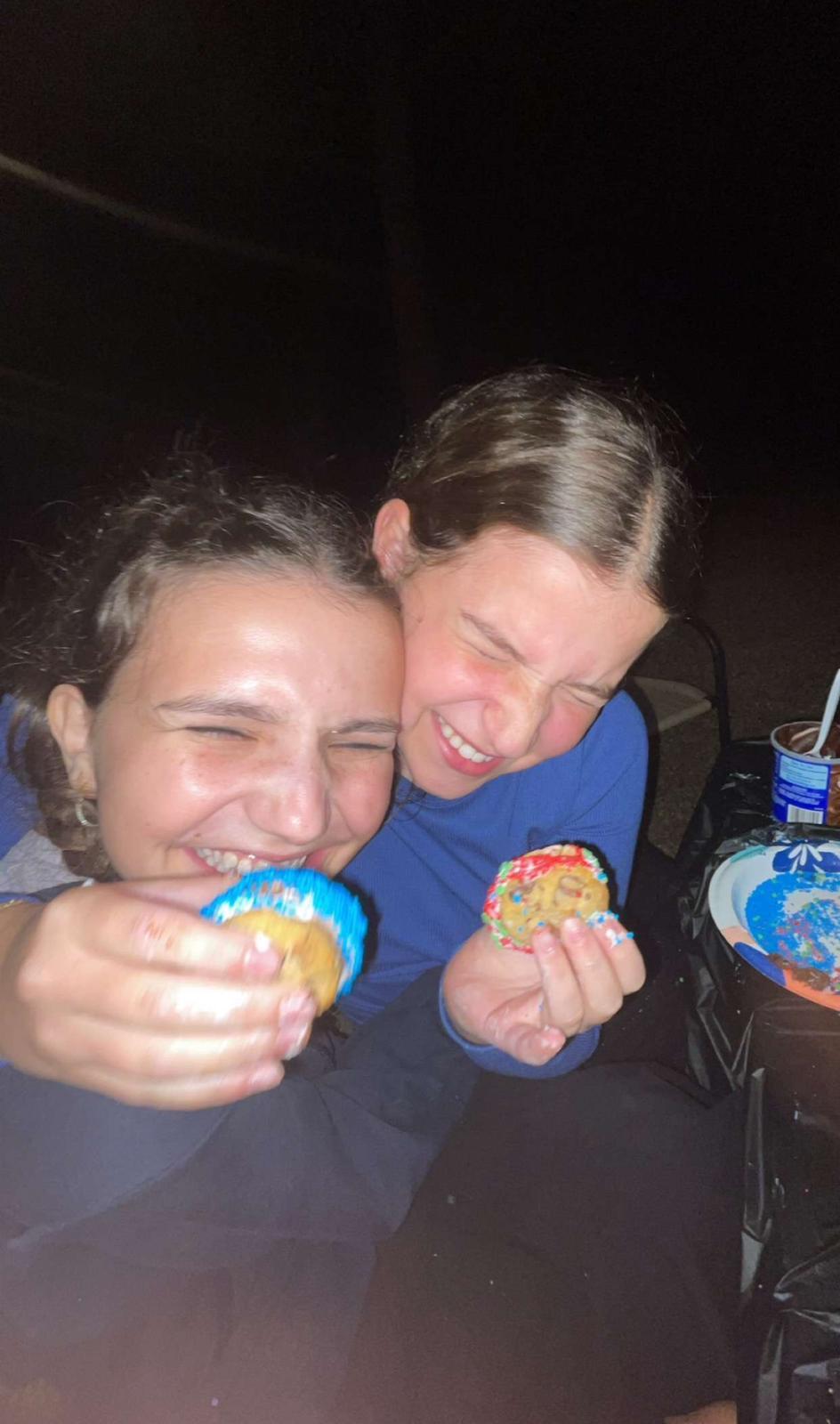
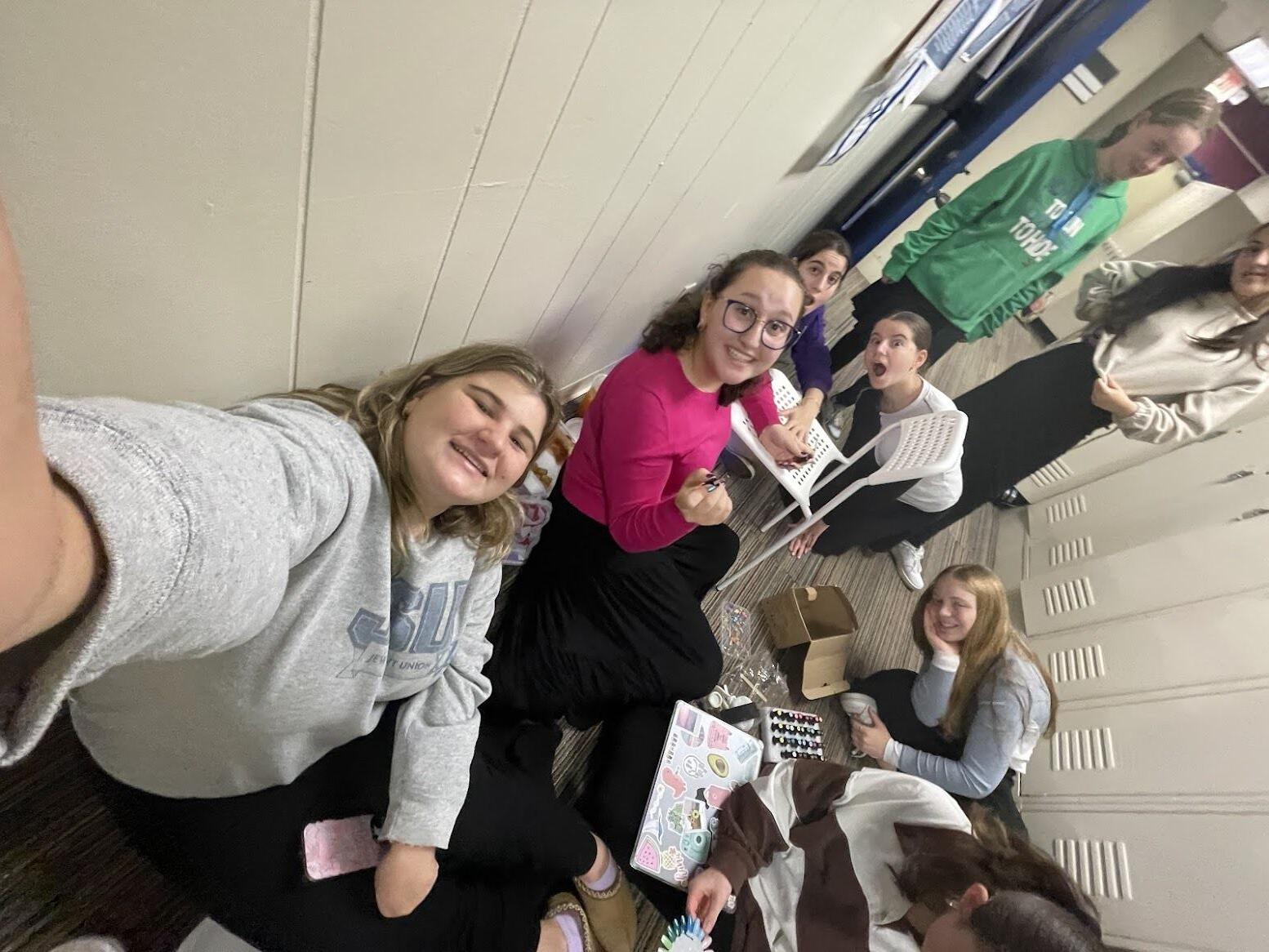

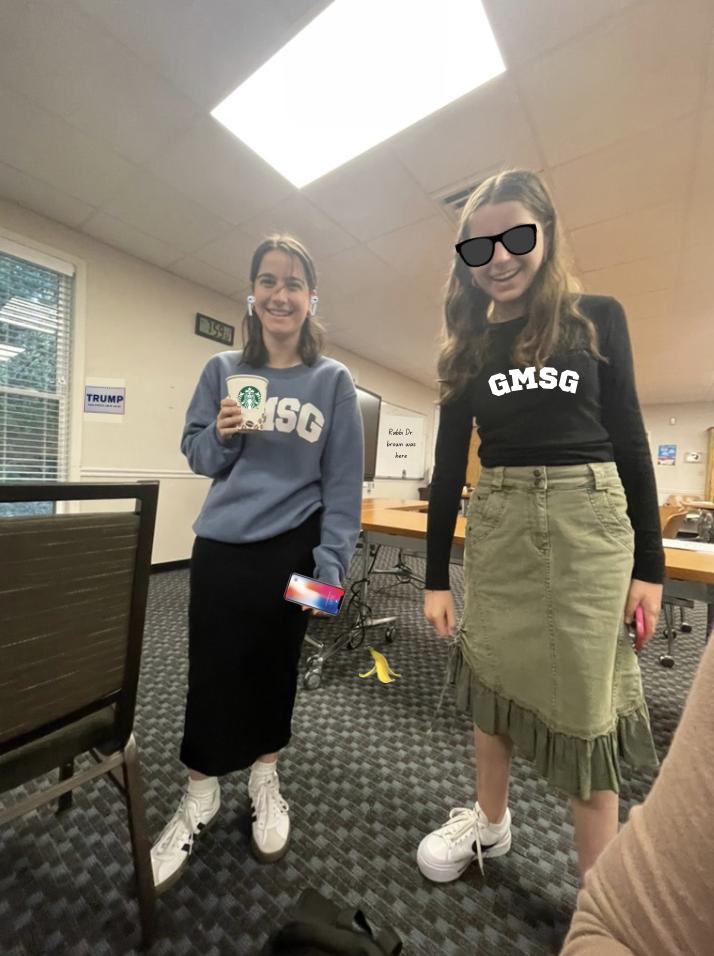
Try to find all the differences, we bet you won't! If you think you've found them all, send them in to sarah.kahane@mhafyos.org
Dear Goldie,


I can’t believe the summer is already GONE!! I feel like I’m drowning in school work and I keep getting so distracted that I can’t focus on anything having to do with Elul! Trust me, I know that Elul is the time to reconnect with Hashem and really dive deep into who I am as a Jew, but with all my school work it's really hard for me to get into that mindset. Rosh Hashanah is right around the corner and I want to be inspired and have a good year as well as being in the right mindset for Yom Kippur. How am I possibly supposed to focus on Elul AND get my work done all at once??
Please help me Goldie! Sincerely, Stressed_with_School85
Dear Stressed_with_School85, Gee are you in a pickle. My advice is to use the time you're given in school to your advantage and let it build your character. There is so much time in the school day to improve yourself, maybe try and help out your friends understand an assignment, talk to the new dormers and get to know them better, or even bring an extra pair of shoes for your friend who mistakenly wore flip flops to gym. Take your lessons seriously, ask your teachers for help if you don't understand something, and here is a pro tip, when you acctually listen, your classes make a lot more sense. You can even ask your teachers for some advice on how to get into the Elul spirit. Back in my day, I felt the best way to connect with the Elul spirit was through nature. I remember running through my Bubbe’s apple fields, picking out the freshest apple. Ah, what a time to be alive. Everyone has their own way of getting into the spirit of the high holidays but remember, you can do anything you set your mind to. Have a very demure Elul... or whatever the new slang is these days.

Dear Readers,
With the beginning of both the school year and the Jewish year, we stand at a fresh slate. We have already gotten into full swing of the school year and are thrilled to share it with you and we can't wait to see what is to come. Taking the inspiration from our summers and Elul learning, we should all have a meaningful Tishrei and new year. On behalf of our staff, I wish you all a K'tivah V'Chatimah Tovah and a Shana Tovah U'Metukah.

To sponsor an issue for just $30, email Margalit Goldkin at margalit.goldkin@mhafyos.org
Shayna Klein
Editor-in-Chief shayna.klein@mhafyos.org
Sarah Kahane
Senior Editor sarah.kahane@mhafyos.org
Dahlia Siegel
Managing Editor dahlia.siegel@mhafyos.org
Hodaya Harary
News Editor
hodaya.harary@mhafyos.org
Neima Rovner
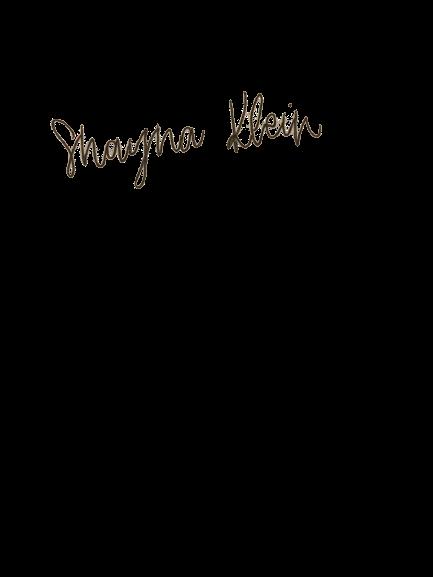
Assistant Editor-in-Chief
neima.rovner@mhafyos.org
Brooke Sanderson
Layout Editor brooke.sanderson@mhafyos.org
Atara Segal
Features Editor atara.segal@mhafyos.org
Aliza Wiener
Social Media Editor
General Staff
Talya Mendelson
Margalit Goldkin
Sara Shimanovich
Yonina Lichter
Rachel Sanderson
Adina Schwartzberg
Yaheli Zalman
Daphna Kam
Sara Klein
Mrs. Ashley Brown &
Mrs. Ashley Brown & Rabbi Baruch Harris
Faculty Editors
aliza.wiener@mhafyos.org
Instagram: @goldie_globe
Mrs. Dina Selter